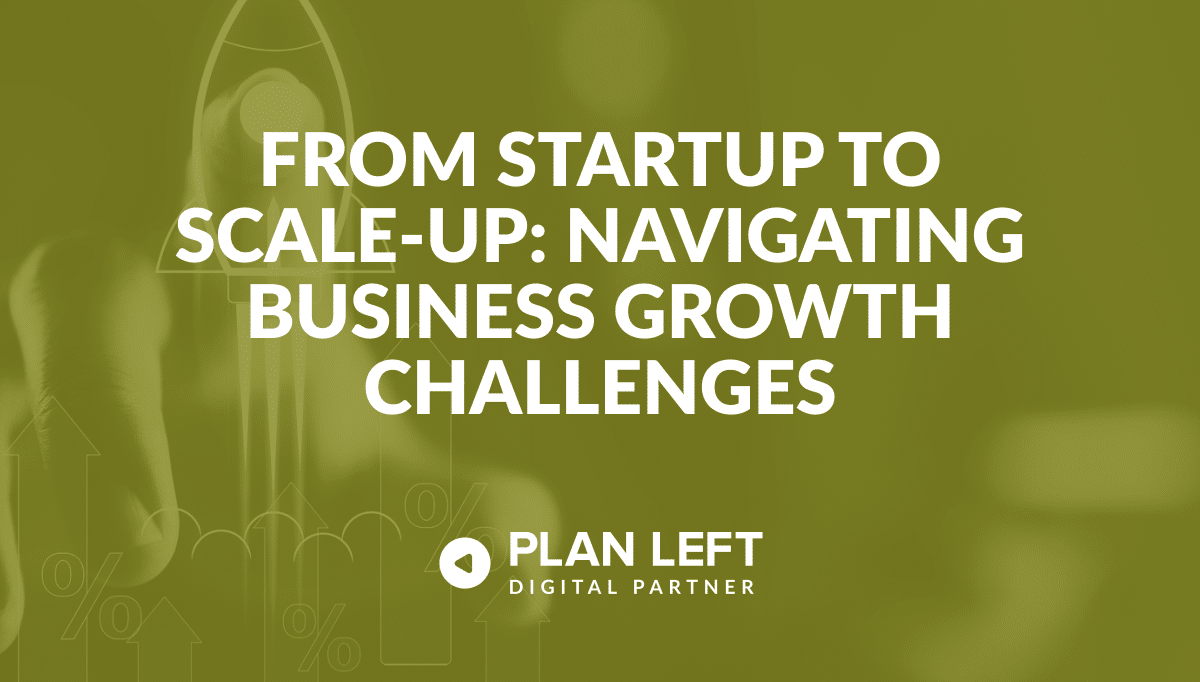
The moment your startup hits its first major growth milestone feels electric. Revenue is climbing, customers are responding, and everything seems to be clicking into place. But then reality sets in: the scrappy systems that got you here are starting to crack under pressure, your team is stretched thin, and the informal processes that once felt liberating now feel chaotic.
Welcome to one of entrepreneurship’s most critical junctures—the transition from startup to scale-up.
This transformation represents far more than simply growing larger. It’s a fundamental reimagining of how your business operates, communicates, and evolves. The companies that navigate this transition successfully don’t just survive their growth—they harness it to build sustainable, thriving enterprises that can weather market changes and continue expanding strategically.
The Startup to Scale-Up Transition
Recognizing the Growth Inflection Point
The shift from startup to scale-up doesn’t happen overnight, and recognizing when you’ve reached this inflection point can mean the difference between sustainable growth and organizational chaos. Several key indicators signal that your business is ready for this transformation.
Revenue consistency often serves as the first major indicator. When your startup moves beyond sporadic sales to predictable, recurring revenue streams, you’ve likely hit the foundation needed for scaling. This consistency provides the financial stability required to invest in the infrastructure and talent necessary for expansion.
Market validation becomes equally important. If you’re seeing strong product-market fit with customers actively seeking out your solution, requesting additional features, or referring others to your business, these signals suggest your offering has the staying power needed for scale-up success.
However, timing this transition incorrectly can be costly. Premature scaling—attempting to expand before achieving sufficient market validation or operational stability—can drain resources and destabilize your core business. Conversely, delayed scaling can mean missing market opportunities or allowing competitors to gain ground while you’re still operating with startup constraints.
Strategic Operational Transformations
Rebuilding Organizational Infrastructure
The transition from startup to scale-up demands a complete rethinking of your operational infrastructure. The informal processes and ad-hoc solutions that enabled your initial success must evolve into structured, repeatable systems that can support significant growth without constant founder intervention.
This transformation begins with shifting from informal to structured processes across every aspect of your business. Where startup decisions might have been made in hallway conversations or quick Slack messages, scale-ups require documented procedures, clear approval processes, and systematic approaches to everything from customer onboarding to quality control.
Developing scalable business systems becomes paramount during this phase. Your customer relationship management needs to evolve from spreadsheets to comprehensive CRM platforms. Financial tracking must move beyond basic bookkeeping to include detailed analytics, forecasting, and performance metrics. Even hiring processes need to shift from founder-led interviews to structured recruitment systems with defined roles, responsibilities, and evaluation criteria.
Creating robust operational frameworks provides the backbone for sustainable expansion. This means establishing clear reporting structures, defining key performance indicators for each department, and implementing communication systems that keep everyone aligned as the team grows. Without these frameworks, rapid growth can quickly lead to miscommunication, duplicated efforts, and strategic drift.
The goal isn’t to eliminate all startup agility, but rather to create structure that enables faster, more confident decision-making as complexity increases. Well-designed systems should accelerate growth rather than constrain it, providing the foundation for your team to execute efficiently at scale.
Cultural and Team Dynamics
Maintaining Core Values During Expansion
Perhaps no aspect of the startup-to-scale-up transition proves more challenging than preserving company culture while rapidly expanding your team. The close-knit, everyone-knows-everyone dynamic that defines many successful startups can seem impossible to maintain when you’re doubling or tripling your workforce.
The key lies in intentionally codifying and communicating your core values before they become diluted by growth. This means moving beyond informal cultural understanding to clearly articulated principles that guide hiring, performance evaluation, and strategic decisions. Your values should be specific enough to influence daily behavior yet flexible enough to remain relevant as your business evolves.
Strategies for team evolution must balance maintaining cultural DNA with bringing in new perspectives and expertise. This often means being more selective about culture fit during hiring while remaining open to candidates who can challenge and strengthen your existing approaches. The most successful scale-ups create onboarding processes that immerse new team members in company culture while empowering them to contribute their unique perspectives.
Practical Frameworks for Business Scaling
Successful business scaling requires systematic approaches that can be implemented, measured, and refined over time. The most effective frameworks provide step-by-step guidance while remaining flexible enough to adapt to your specific industry and business model.
A comprehensive scaling approach typically begins with thorough assessment of your current capabilities and constraints. This means honestly evaluating which systems, processes, and team structures are ready for increased demands and which need immediate attention. Many businesses discover that their biggest scaling bottlenecks aren’t external market factors but internal operational limitations.
Tools for managing organizational transformation range from project management platforms that coordinate complex scaling initiatives to analytics systems that track key performance indicators throughout the growth process. The right technology stack can dramatically accelerate your scaling timeline while reducing the risk of operational breakdowns during rapid expansion.
Strategic planning for business expansion requires balancing ambitious growth targets with realistic timelines and resource constraints. This involves setting clear milestones, establishing contingency plans for various growth scenarios, and maintaining enough financial reserves to weather unexpected challenges or opportunities.
Charting Your Growth Trajectory
The journey from startup to scale-up represents one of the most exciting and challenging phases in building a business. While every company’s path will be unique, the fundamental principles of strategic scaling remain consistent: recognize your growth inflection point, invest in operational infrastructure, preserve cultural values while evolving team dynamics, and implement practical frameworks that guide sustainable expansion.
Success in this transition requires embracing a new mindset about growth itself. Rather than pursuing growth for its own sake, focus on building the systems, processes, and team capabilities that enable sustainable, strategic expansion. This approach positions your business not just to survive the scale-up phase, but to emerge as a stronger, more resilient organization ready for whatever challenges and opportunities lie ahead.
The entrepreneurs who navigate this transition most successfully understand that scaling up means scaling smart. They invest time in building solid operational foundations, maintain clear communication about company values and vision, and remain flexible enough to adjust their approach as they learn and grow.
Explore Latest Posts
Breaking the $5M Revenue Ceiling: Marketing Strategies for Mid-Sized Companies The $5 million revenue mark represents one of the most ... read more
January 21, 2026
The Real ROI of Digital Marketing: 5 Metrics Beyond Clicks That Actually Matter Your marketing agency just sent over this ... read more
January 15, 2026
How to Know When DIY Marketing Is Costing You More Than An Agency Would Every founder starts somewhere, and for ... read more
January 13, 2026
Essential Strategies for Entrepreneurs
Get Actionable Business Insights & Marketing Tips
Our newsletter delivers real-world strategies from entrepreneurs who’ve been exactly where you are.
Sign up now for:
- Actionable growth strategies that work
- Insider tactics for attracting top talent
- Real-world case studies from successful founders
- Emerging tech trends that drive innovation
- Pragmatic marketing approaches for visionary leaders




